General Election 2024: Our Response to the Labour Party Manifesto
Speaking about the Labour Party Manifesto, Chloe Schendel-Wilson, Co-Founder and Director of the Disability Policy Centre, said:
"The needs of disabled people are all too often marginalised or forgotten about by politicians, so it's positive to see disabled people considered through the Labour Party Manifesto. In particular on getting people back to work, improving accessible transport, welfare reform and education.
"The one notable omission, however, is housing, where it's alarming to see accessibility being entirely neglected despite the needs for improvements in this area being repeatedly and strongly voiced.
"Despite the positives, this manifesto remains primarily another evolution of Labour's vision for the country, instead of being a policy blueprint on which they can be held accountable. It lacks detail, for example, on how we can ensure disabled people succeed in work, how a National Care Service would work in practice or how the welfare system can be improved.
"If Labour are to become the future government, they will need to get to work on day one of realising this ambition with precise policies which will make a genuine difference to the lives of disabled people who all too often been neglected. In this eventuality, we very much look forward to working with them and creating a fairer, safer and more prosperous country for disabled people."
Our Analysis
Economic Growth:
We agree that economic growth will help disabled people and wider society, but, as we highlighted in our paper on Living Standards, improving the economic model for disabled people requires genuine welfare reform and targeted work to help disabled people who want to work not only get into work, but to stay and succeed in the workplace.
A Modern Transport Network:
We welcome the focus on safety and accessibility within Great British Railways. A potential future Labour government would need to co-design this with disabled people from the outset. Learning from the success of the approach with the Elizabeth Line in London, which consulted with disabled people’s organisations in the design, which is why it is so accessible.
Housing:
The absence of any mention of Accessible Homes is very disappointing as this is an urgent priority for disabled people across the country.
Supporting people into work:
We welcome the focus on helping disabled people and those with long-term health conditions into work, and devolving funding in particular as this is an approach we know works well. We also welcome the commitment to tackle the Access to Work backlog.
We think it’s positive to see acknowledgement of giving disabled people the confidence to start working without fear of immediate benefit reassessment if it doesn’t work out. Too many people fear get stuck between inaccessible workplaces, and an outdated welfare system for this exact reason.
We welcome the fact that a proper plan is put into place to support disabled people to work. This needs to acknowledge that disabled people also need help staying in work and succeeding in work. This issue will require really bold welfare reform and work with employers. We hope that Labour understand the scale and importance of this challenge, and look forward to working with them to drive solutions.
We welcome discussion on the disability pay gap, but this means nothing if Labour don’t take action to improve disabled representation in leadership positions and at Board level.
NHS and Social Care:
Positive to see the commitment to reduce waiting times and reform the service. We have shown in our analysis that waiting lists are disproportionately a disability related issue.
We welcome the acknowledgement on care of chronic staff shortages, inconsistent standards and fact that care does not always equal dignity and respect.
We also welcome the focus on mental health and health inequalities, as research shows that disabled people are disproportionately impacted by poor mental health.
Education and Skills:
Improving careers advice needs to be done with an understanding that this is a real issue for a lot of disabled young people, and any reforms need to be tailored with this in mind.
It’s positive to have an employer-led approach to skills which should help benefit young people. Often in our research we have heard that the education system is too ‘one size fits all’ and doesn’t support disabled children and young people into work.
We welcome the commitment to raise inclusivity and expertise amongst teachers to support disabled students in mainstream schools. This was a previous recommendation from The Disability Policy Centre’s ‘State of the Nation in SEND Education’ report. But this is another really big issue considering the scale of challenge for children, parents and carers, and we hope that it is backed up by bold action.
Knife crime:
Labour have spoken about improving support in Pupil Referral Units. Disabled young people are much more likely to be in Pupil Referral Units in the first place, so this must be addressed first as a priority. Our Education report found that in some local authorities 100% of pupils in PRUs were disabled, or had special educational needs. If we want to stop young people being in PRUs in the first place, we need to make the education system truly work for all.
Overall, this manifesto has a positive vision, and addresses important points that matter to disabled people - from accessible transport to improving education. But over the coming years, this vision needs to be bolder and more detailed - particularly on social care and welfare reform. We look forward to working to shape these policy areas in the upcoming Parliament, whoever reaches Number 10.
